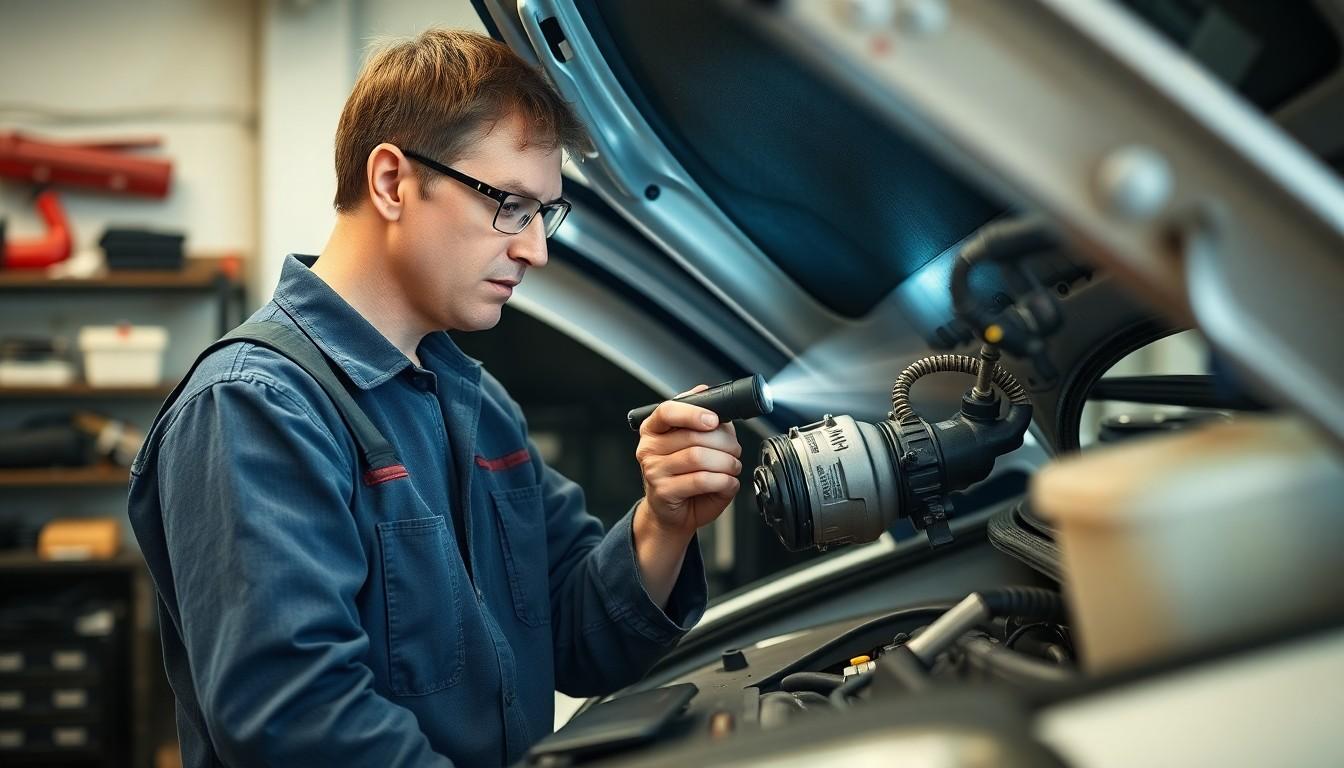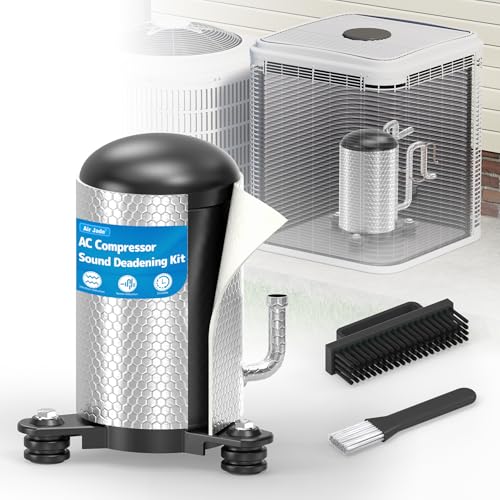Is your car’s AC making strange noises that weren’t there before? That unsettling sound might be coming from a failing AC compressor – the heart of your vehicle’s cooling system. Recognizing these warning sounds early can save you from complete system failure and costly repairs down the road.
We’ve helped thousands of drivers identify AC compressor problems before they escalate into major issues. From high-pitched squealing to grinding noises and unusual clicking sounds, a problematic compressor has distinctive audio signatures that shouldn’t be ignored. In this guide, we’ll walk you through the most common sounds of a failing AC compressor and explain what each one means for your vehicle’s health.
Common Sounds of a Failing AC Compressor
Your car’s AC compressor produces distinctive sounds when it’s starting to fail. These noises serve as early warning signs that something isn’t right with your vehicle’s cooling system. Let’s explore the different sounds that indicate compressor problems and what they mean for your car’s air conditioning performance.
Knocking and Banging Noises
Knocking or banging sounds from your AC compressor indicate serious internal damage. These loud, metallic noises typically result from broken or loose components inside the compressor, such as connecting rods, pistons, or valves. The sounds often intensify when the AC is running at higher speeds or under heavier loads. Internal bearing failure can also create persistent knocking that grows louder over time. This type of noise requires immediate attention, as continuing to operate the system with these symptoms can lead to complete compressor seizure and potential damage to other AC components.
Squealing or Screeching Sounds
Squealing or screeching noises point to belt issues or lubrication problems in your AC compressor. A worn, loose, or misaligned serpentine belt creates high-pitched squeals, particularly when you first turn on the AC system. Bearing failures within the compressor pulley assembly produce similar screeching sounds that persist during operation. These noises often worsen during acceleration or when the compressor clutch engages. Low refrigerant levels can also cause the compressor to work harder, resulting in squealing noises as internal parts struggle without proper lubrication. Addressing these sounds promptly helps prevent further damage to the compressor and associated components.
Rattling or Buzzing Noises
Rattling or buzzing from your AC compressor suggests loose mounting brackets or internal component issues. These noises typically sound like metal parts vibrating against each other and become more noticeable at idle or low speeds. Loose clutch plates within the compressor create distinctive buzzing sounds when the system cycles on and off. Electrical problems with the compressor clutch coil may produce intermittent buzzing that corresponds with cooling inconsistencies. Debris caught in the compressor fan or housing sometimes causes rattling that changes with engine speed. Regular inspection of mounting hardware and electrical connections helps identify these issues before they lead to compressor failure.
Hissing or Bubbling Sounds
Hissing or bubbling noises indicate refrigerant leaks or pressure problems in your AC system. These sounds occur when refrigerant escapes through cracks in the compressor housing, seals, or connecting lines. A gurgling or bubbling noise often suggests air in the system or improper refrigerant levels affecting the compressor’s operation. Excessive pressure in the system creates distinctive hissing sounds, especially during compressor engagement. The expansion valve may also produce similar noises if it’s struggling to regulate refrigerant flow properly. These symptoms typically accompany reduced cooling performance and require professional diagnosis to locate and repair leaks before refilling the system with refrigerant.
What Causes These Unusual Compressor Noises
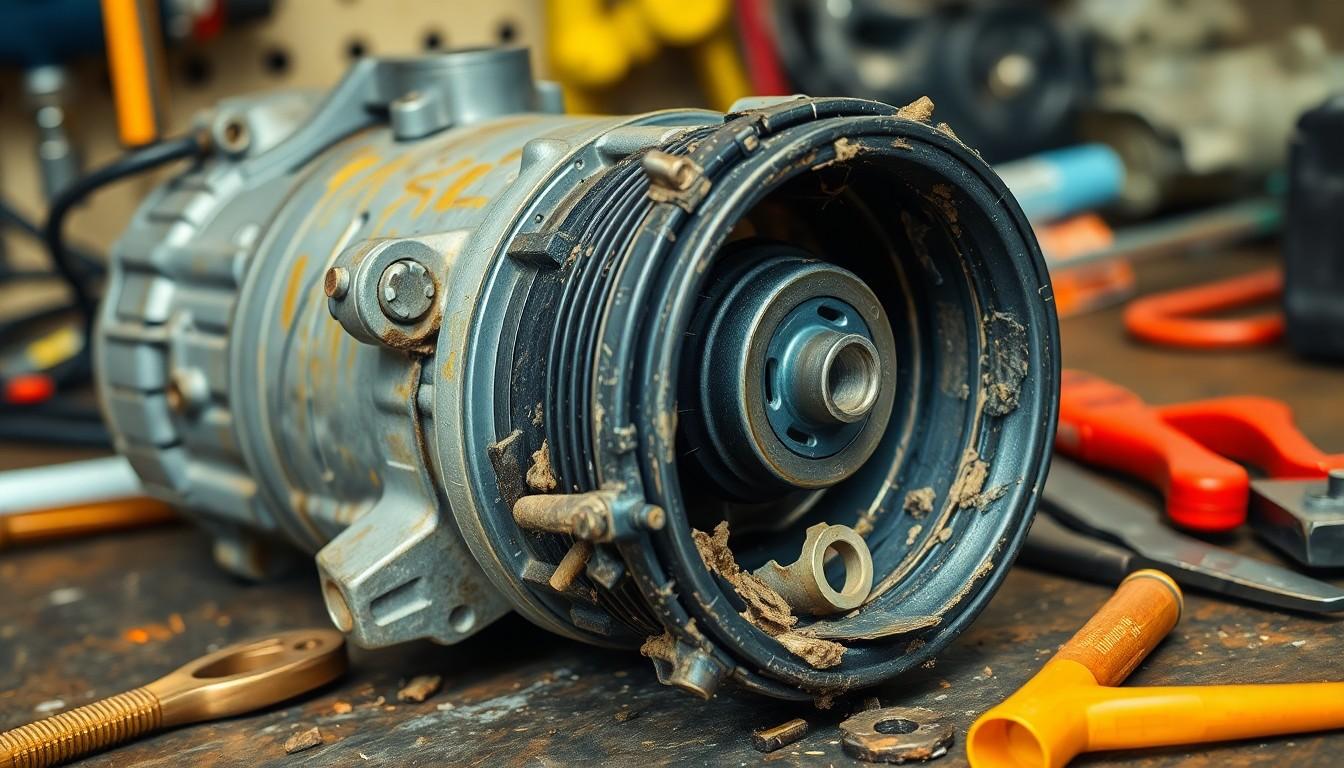
AC compressor noises stem from exact mechanical, refrigerant, or electrical issues within your vehicle’s cooling system. Understanding these underlying causes helps identify when professional intervention is necessary before minor problems escalate into major repairs.
Internal Component Failure
Internal component failures create some of the most alarming AC compressor noises. Worn-out bearings produce grinding sounds that worsen during operation, indicating advanced deterioration. Loose or broken parts such as piston pins, crankshafts, and connecting rods generate banging or knocking noises as they contact other components inside the compressor. These internal failures typically result from normal wear and tear, poor lubrication, or extended use without proper maintenance. Severe internal damage often requires complete compressor replacement rather than repair, as individual internal components aren’t typically serviceable in most modern vehicle AC systems.
Refrigerant Issues
Refrigerant problems manifest through distinctive sounds that signal system pressure abnormalities. Low refrigerant levels cause the compressor to work harder, creating unusual whining or humming noises as it struggles to maintain pressure. Refrigerant leaks produce hissing sounds, particularly from worn-out compressor seals that allow the pressurized refrigerant to escape. High pressure levels within the system can generate alarming screeching or screaming noises that require immediate professional attention. UV dye detection methods help technicians locate these sometimes invisible leaks that compromise both system performance and environmental safety.
Electrical Problems
Electrical issues trigger distinctive sounds while potentially causing further damage to your AC compressor. Insufficient electrical connections result in clicking noises as the compressor attempts to engage but fails due to inadequate power supply. Loose wires create intermittent buzzing or chattering sounds when the compressor receives unstable voltage. High amperage situations strain the entire system, producing humming or whining noises while potentially overheating components. Starting capacitor failures prevent proper compressor engagement, creating clicking sounds followed by silence. These electrical problems not only create annoying noises but can quickly lead to compressor motor burnout if not addressed promptly.
How to Diagnose AC Compressor Problems by Sound
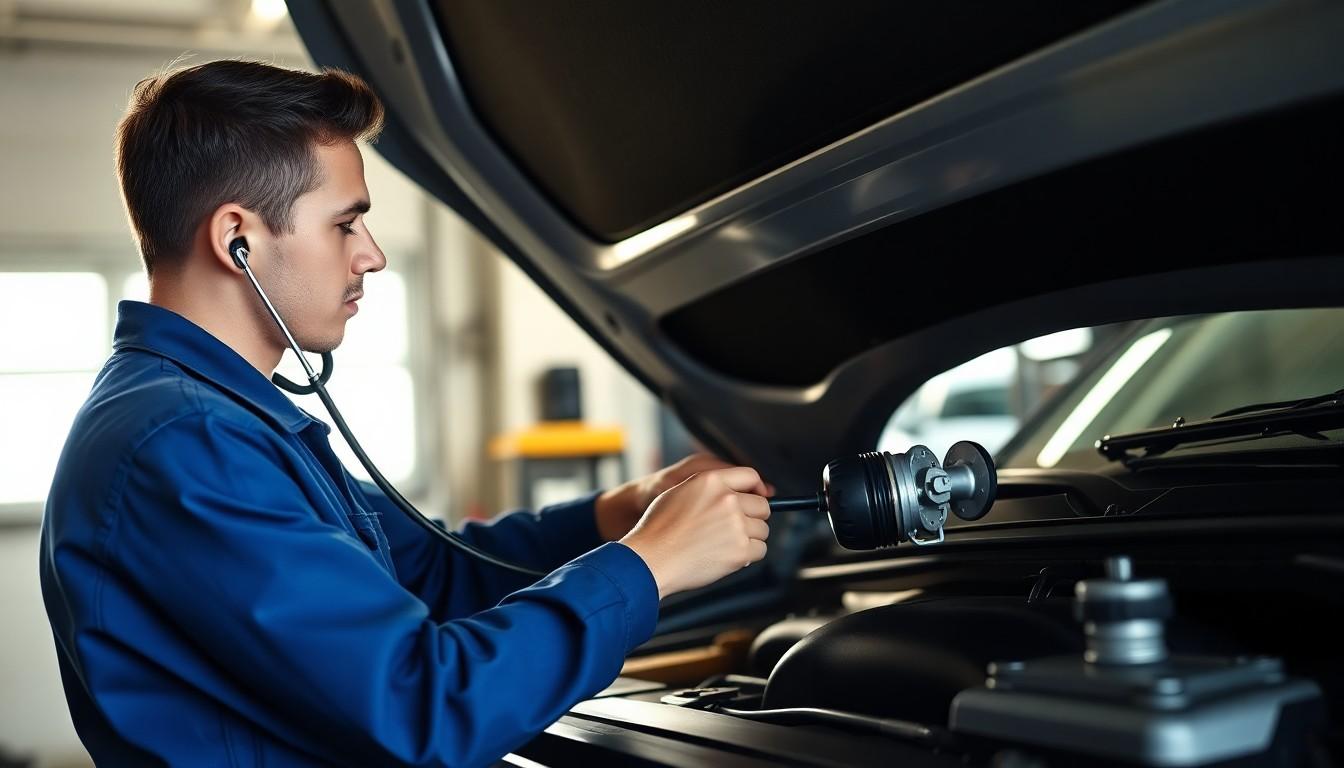
Diagnosing AC compressor issues through sound identification helps pinpoint problems before they escalate into costly repairs. By listening carefully to the noises your AC system makes, you can often determine what’s wrong and decide whether immediate attention is needed.
Using Sound to Locate the Issue
Sound localization techniques make it easier to identify exactly where AC compressor problems originate. Place a long pry bar or automotive stethoscope against suspected components while the engine runs to amplify and isolate exact noises. Noises from vehicle AC systems typically emerge from under the hood near the compressor location. Turning the AC on and off provides valuable diagnostic information—if the noise appears only when the AC operates and disappears when it’s off, the compressor likely causes the issue. For home AC systems, check the outdoor condenser unit for unusual vibrations or sounds that might indicate compressor failure.
When to Turn Off Your AC System Immediately
Certain sounds warrant immediate AC system shutdown to prevent further damage. Persistent loud grinding or rattling noises signal serious internal damage that could completely destroy the compressor if operation continues. Hissing sounds indicate potential refrigerant leaks, which not only compromise cooling efficiency but also present environmental and safety concerns. If your vents suddenly blow warm air instead of cool air while making unusual noises, this combination strongly suggests compressor failure. Buzzing accompanied by system failure to start might signal electrical problems that could damage other components if not addressed promptly. These warning signs require immediate system shutdown and professional evaluation to prevent cascading system failures and significantly higher repair costs.
Other Warning Signs That Accompany Bad Compressor Sounds
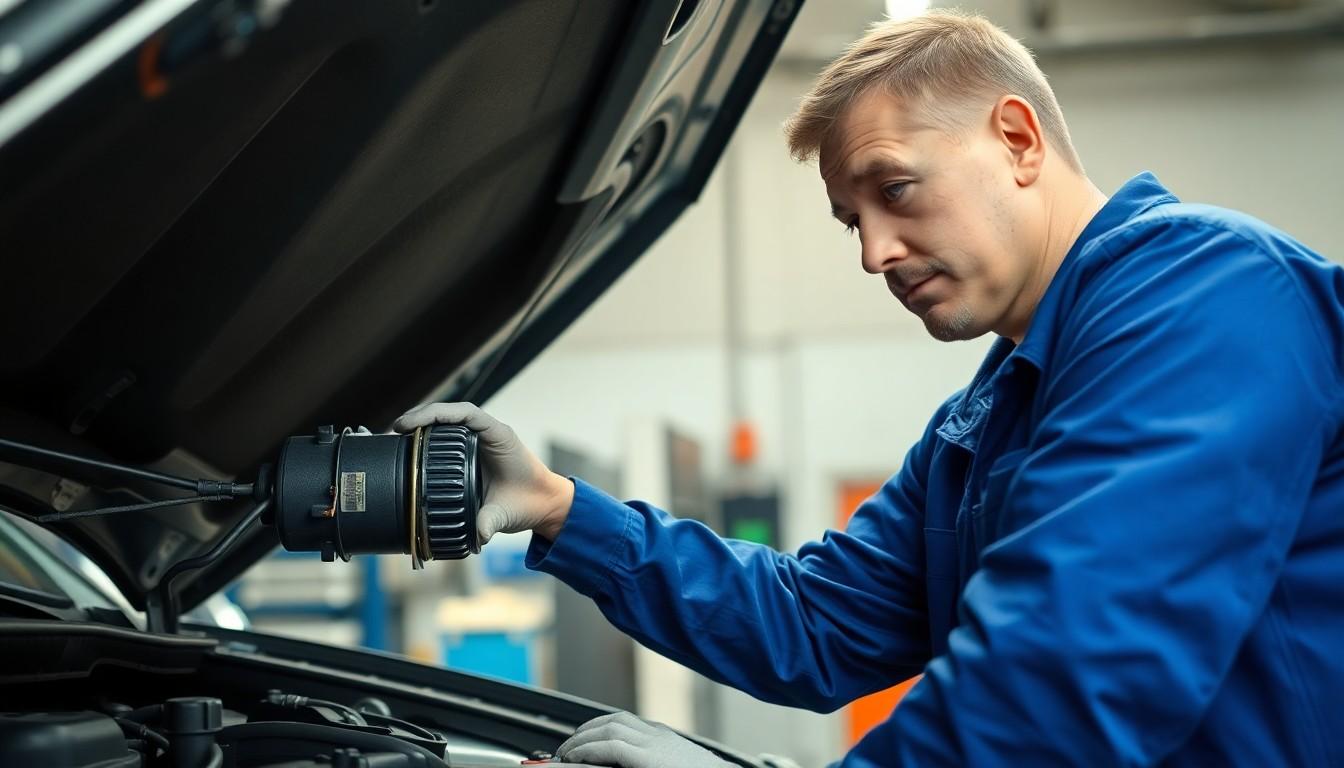
Beyond unusual noises, a failing AC compressor exhibits several telltale signs that indicate serious problems. These additional symptoms often emerge alongside the concerning sounds, creating a clear pattern of compressor failure that requires immediate attention.
Reduced Cooling Performance
Diminished cooling capacity stands as a primary indicator of compressor issues. Your AC system might blow warm or lukewarm air instead of cold air when the compressor struggles to circulate refrigerant properly. Temperature fluctuations between vents or inconsistent cooling throughout your vehicle strongly suggest the compressor can’t maintain proper pressure levels. Many drivers notice their AC takes significantly longer to cool the cabin, particularly during hot weather or when the vehicle idles. Extended cooling times typically indicate the compressor strains to perform its basic function of pressurizing and circulating refrigerant through the system.
Visible Signs of Damage
Physical evidence often confirms what unusual sounds suggest about your AC compressor’s condition. A worn serpentine belt shows excessive wear patterns or fraying edges when a locked-up compressor creates unnecessary friction. Fresh oil spots or stains beneath your vehicle might indicate refrigerant leaks mixed with compressor oil, especially near AC components. UV dye added to the system can help locate these leaks by glowing under specialized light. Debris accumulation around the compressor unit or loose hardware in the casing creates rattling noises and accelerates component wear. Corrosion on electrical connections or burnt wiring near the compressor points to electrical faults causing buzzing sounds. The compressor clutch may show visible damage or fail to engage properly when the AC activates, resulting in clicking sounds without cooling action.
When to Call a Professional vs. DIY Troubleshooting
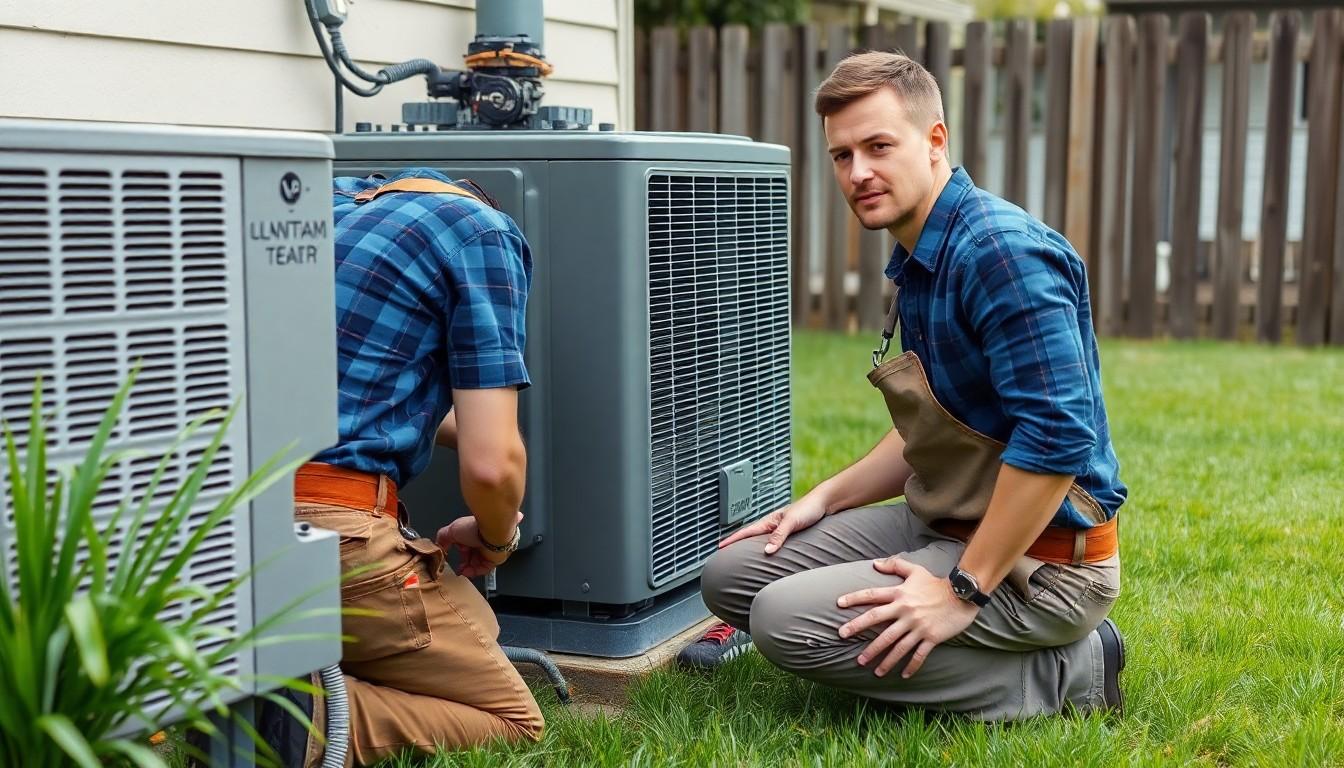
When to Call a Professional
Certain AC compressor sounds demand immediate professional attention. Loud hissing or screaming noises typically indicate dangerous pressure levels within the compressor unit and shouldn’t be ignored. Banging or clanking sounds signal loose or broken internal components such as piston pins, crankshafts, or connecting rods that require expert repair. Professional technicians should handle any grinding noises as these often stem from worn bearings or important internal damage that DIY repairs can’t address. Electrical issues causing persistent buzzing noises also necessitate professional intervention to prevent further system damage.
DIY Troubleshooting
Some AC compressor issues can be handled through basic DIY troubleshooting. Visual inspection of the serpentine belt offers a simple starting point – checking for cracks, fraying, or excessive wear that might cause squealing noises. Refrigerant level checks represent another manageable task for homeowners with basic knowledge, as low refrigerant often forces compressors to work harder and produce unusual sounds. Minor squealing noises from the belt area might be resolved by applying belt dressing or replacing a worn belt. UV dye testing can help identify refrigerant leaks before they worsen into major problems.
DIY troubleshooting works best for superficial issues and early warning signs. Addressing these minor problems promptly through DIY methods can prevent them from developing into expensive repairs later. Simple maintenance tasks like cleaning debris from around the compressor unit and ensuring proper airflow often improve performance and reduce unusual noises. For persistent or worsening sounds even though DIY efforts, consulting a professional represents the safest option to protect both your AC system and your safety.
Preventing AC Compressor Failure and Unusual Noises
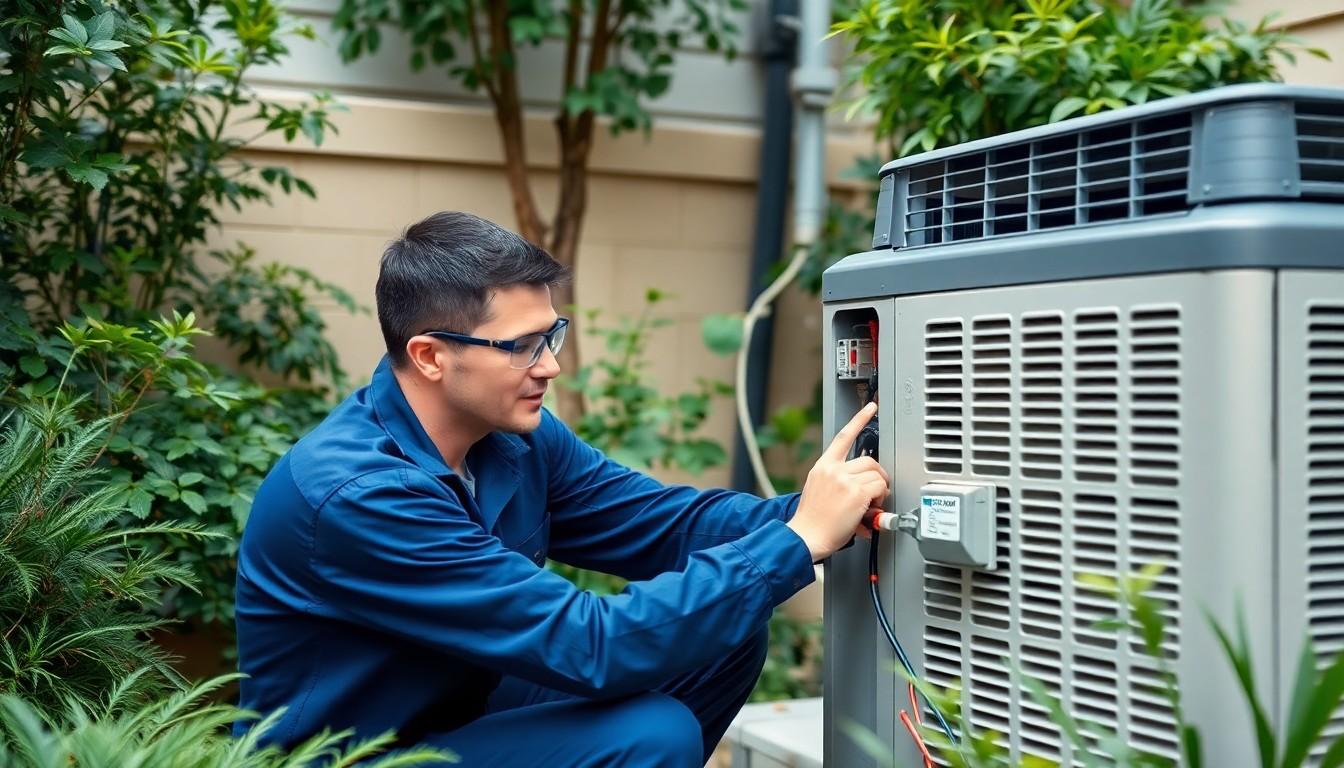
Regular Maintenance Practices
Regular maintenance extends your AC compressor’s lifespan and prevents those concerning noises we’ve discussed. Scheduling seasonal inspections with a qualified technician helps catch minor issues before they manifest as grinding or screeching sounds. Professional technicians typically check for worn bearings, loose components, and electrical connections during these visits. Changing or cleaning air filters every 1-3 months improves airflow and reduces strain on the compressor system. Maintaining proper refrigerant levels is crucial since low levels can cause whining noises and eventually lead to compressor failure.
Monitoring System Performance
Monitoring your AC system’s performance helps detect potential compressor problems early. Keep track of cooling efficiency and notice if rooms take longer to cool than before, as this often precedes unusual compressor noises. Check the temperature difference between supply and return air vents, which should typically be between 14-20°F when operating correctly. Listen for any changes in operational sounds during startup and shutdown cycles. Unusual sounds like clicking or buzzing indicate electrical issues that require immediate attention before they develop into more serious problems.
Avoiding Overuse and Strain
Excessive use puts unnecessary strain on AC compressors, leading to premature wear and those alarming banging or clanking noises. Set your thermostat to reasonable temperatures rather than extreme settings that force the system to work harder. Running the AC continuously on extremely hot days makes the compressor vulnerable to overheating and mechanical damage. Give your system periodic breaks during peak heat periods to prevent internal components from breaking loose. Ensure proper airflow around the outdoor unit by keeping it clear of debris, vegetation, and obstructions that can restrict air circulation.
Professional Inspection Tips
Professional inspections catch potential problems before they develop into noisy failures. Technicians check the compressor’s amperage draw, which reveals electrical issues that might cause buzzing noises. They examine mounting brackets and cushions that, when worn, allow the compressor to vibrate and produce rattling sounds. Pressure tests identify refrigerant leaks before they cause those concerning hissing or screaming noises mentioned earlier. Electrical component testing detects failing capacitors or relays that often manifest as clicking sounds when malfunctioning. These comprehensive checks typically cost $75-150 but save thousands in potential repair or replacement costs.
Conclusion
Recognizing the telltale sounds of a failing AC compressor can save you from unexpected breakdowns and costly repairs. Whether it’s grinding knocking squealing or hissing these noises serve as your car’s way of communicating problems before they escalate.
Don’t ignore these warning signs. When combined with reduced cooling performance visible damage or unusual operation they create a clear pattern that demands attention.
We recommend regular maintenance and prompt professional inspection when you hear concerning sounds. While some minor issues might be suitable for DIY troubleshooting serious compressor problems require expert care. Being proactive about these warning sounds will eventually protect both your comfort and your wallet.
Frequently Asked Questions
What are the common sounds that indicate AC compressor problems?
Common sounds include high-pitched squealing (indicating belt issues), grinding (internal damage), clicking (electrical problems), knocking or banging (serious internal damage), rattling or buzzing (loose components), and hissing or bubbling (refrigerant leaks). These sounds are early warning signs that should not be ignored as they indicate different types of compressor issues that may worsen over time.
How serious is a grinding noise from my AC compressor?
A grinding noise is very serious and indicates significant internal damage to the compressor components. This typically means bearings or other internal parts are failing. You should immediately turn off your AC system to prevent further damage. In most cases, a grinding noise means the compressor will need to be replaced rather than repaired. Contact a professional technician right away.
Can I drive my car if the AC compressor is making unusual noises?
Yes, you can technically drive your car with a noisy AC compressor, but it’s not recommended for long periods. While it won’t immediately affect your engine’s operation, continued use could lead to complete compressor failure, belt damage, or electrical system issues. If you hear concerning sounds, minimize AC use and seek professional help as soon as possible.
What causes hissing or bubbling sounds in an AC system?
Hissing or bubbling sounds typically indicate refrigerant leaks or pressure problems within the AC system. When refrigerant escapes through small cracks or loose fittings, it creates these distinctive sounds. These issues result in reduced cooling performance and can damage other components if left unaddressed. Professional leak detection and repair are necessary to fix these problems.
How much does it cost to repair or replace an AC compressor?
AC compressor repairs typically cost $200-$500 depending on the issue severity. Complete replacement ranges from $700-$1,200, including parts and labor. Luxury vehicles or complex systems may cost more. Regular maintenance can prevent these expensive repairs. Some repairs may be covered under warranty if your vehicle is relatively new.
Are there any DIY fixes for minor AC compressor noises?
For minor issues, you can check and tighten the serpentine belt if it’s squealing, clear debris from around the compressor, or ensure mounting bolts are tight if there’s rattling. However, internal noises, refrigerant issues, or electrical problems require professional attention. DIY efforts should be limited to visual inspections and simple maintenance to avoid causing additional damage.
How often should I have my car’s AC system inspected?
Have your car’s AC system professionally inspected at least once yearly, preferably before summer. More frequent checks (every 6 months) are recommended for vehicles in hot climates or those over 5 years old. Regular inspections cost $75-150 but can prevent costly repairs exceeding $1,000 and ensure optimal cooling performance during hot weather.
What other symptoms accompany a failing AC compressor?
Besides unusual noises, watch for reduced cooling performance (warm air from vents), longer cooling times, visible damage to the serpentine belt, oil spots indicating leaks, debris accumulation around the compressor, and corrosion on electrical connections. You might also notice the compressor clutch failing to engage or the engine struggling when the AC is running.

